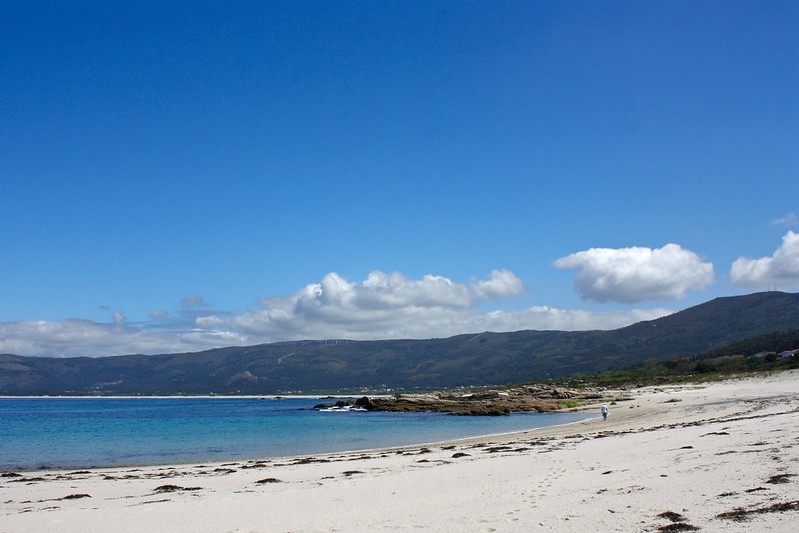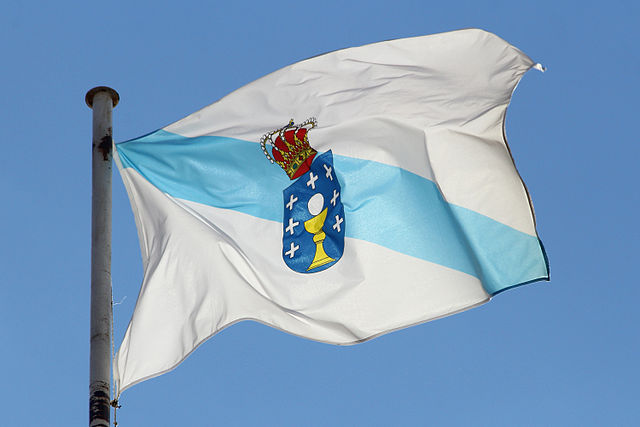Photo Post: Deserted Beaches & Fresh Seafood in Carnota, Spain
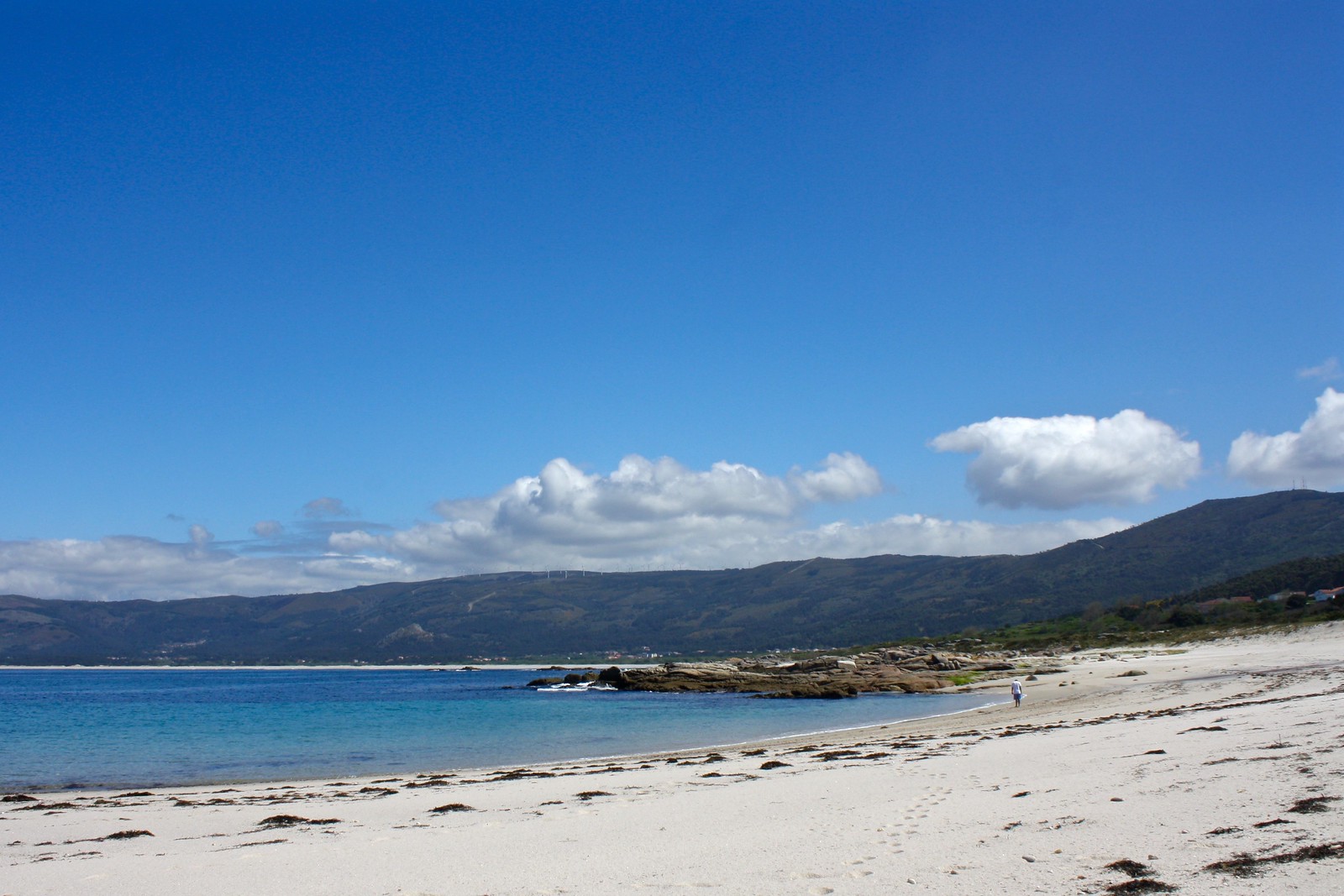 |
| Mar de Lira beach |
It’s not every day you come across a deserted beach that literally stretches for miles beneath a deep blue sky. Yet that’s exactly what happened to me one warm, sunny Saturday in April while exploring the far western reaches of Galicia in northwest Spain.
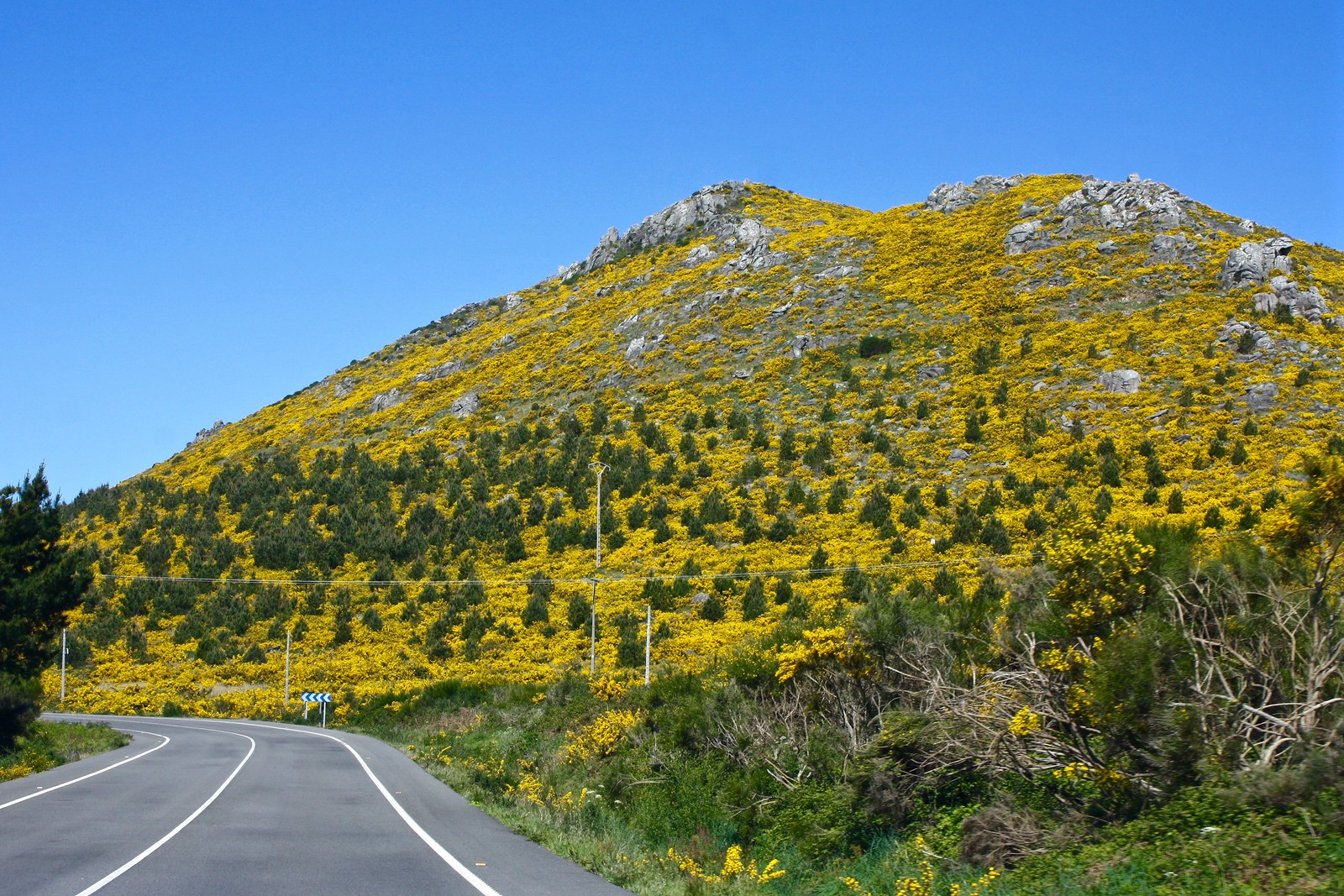 |
| Gorse-covered hillside |
The town of Carnota (really just a collection of rural houses and small family farms) stretches across a flat tract of Galicia’s Atlantic coastline, tucked away in a bend of the Ría de Corcubión—one of many inlets of the sea that extend like fingers into the mainland. Five of these estuaries trickle down the region’s western coast, where steep hillsides contrast with white-sands beaches and where the economy depends on both fishing and white wine production.
 |
| Longest hórreo in Galicia |
But Carnota’s got more than just stunning, vast beaches and pretty rural scenery. This little coastal town is also home to one of the region’s longest hórreos or stone corncrib used to store corn and other crops after the harvest—a common sight across the region, but never as long as the one here. Called an hórreo comunal, this “communal granary” served multiple families when it was built in the late 1700s and is one of those “curiosities” you often find in rural Galicia.
Where to eat and what to order
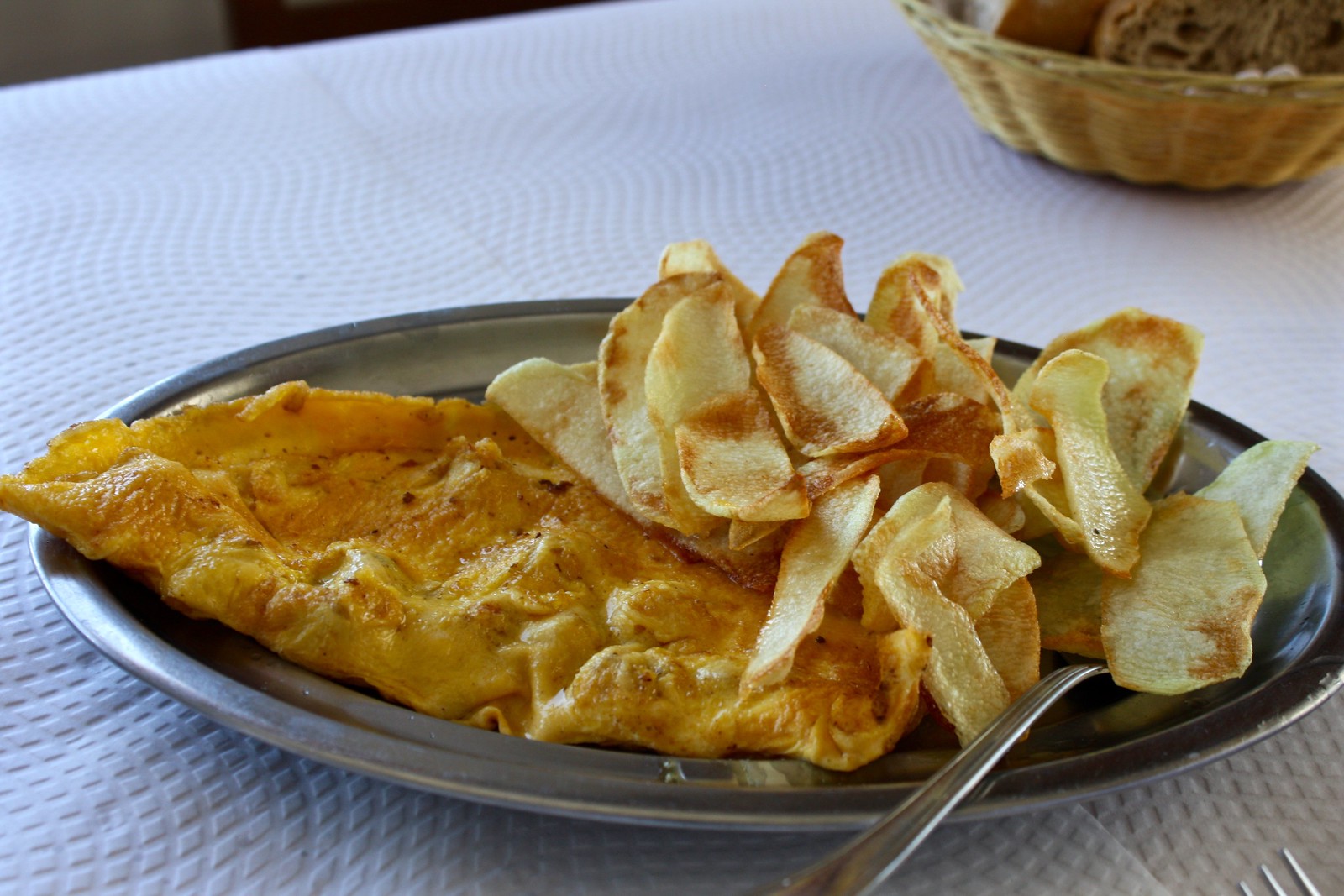 |
| Shrimp omelet |
I had lunch at Restaurante Fontevella, a cozy mom-and-pop-type place with wall-to-wall windows and impressive views of the beach. What was on the menu? Freshly-boiled clams and octopus, a shrimp omelet, and a grilled sardo fish that I’m sure had been caught nearby earlier that day.
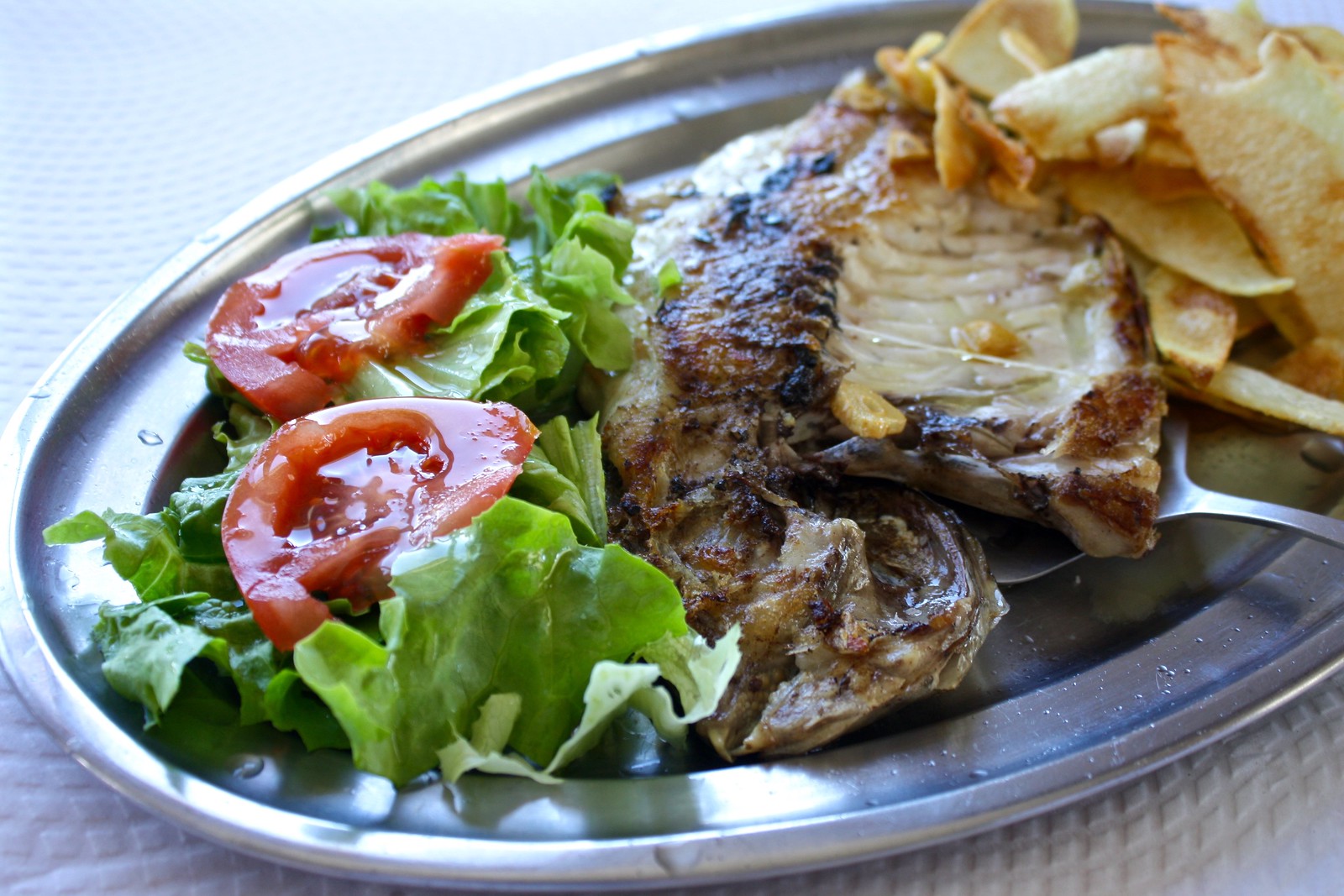 |
| Sargo fish, chips, and salad |
Do you have a favorite “deserted beach”? Does Carnota look skippable or unmissable for you? Tell me in the discussion thread below!
